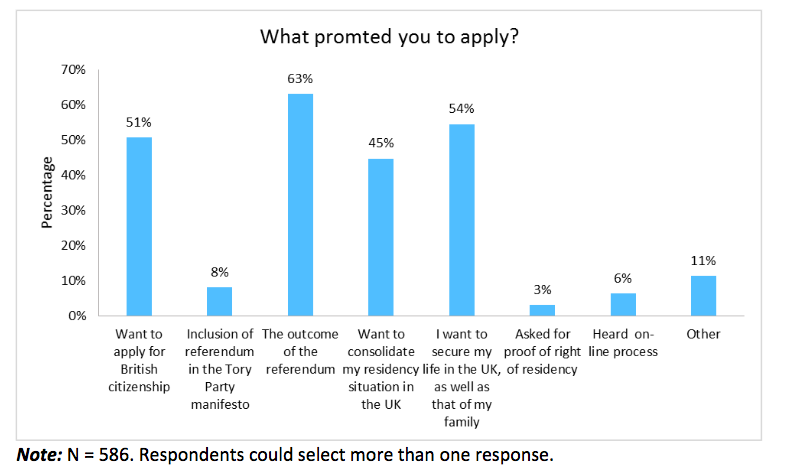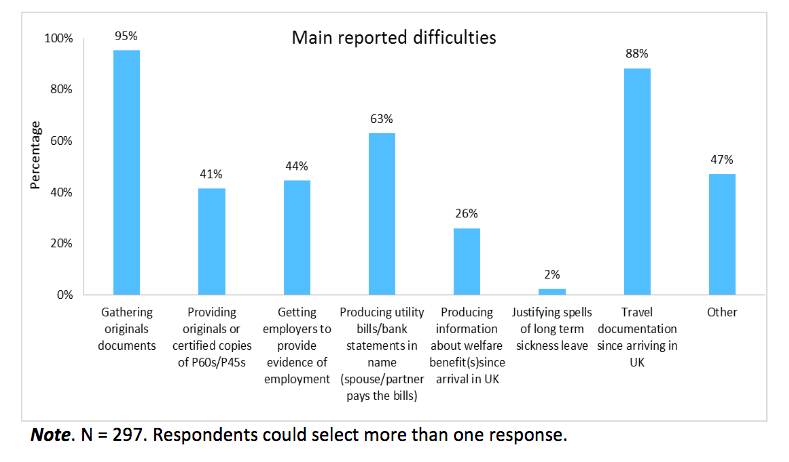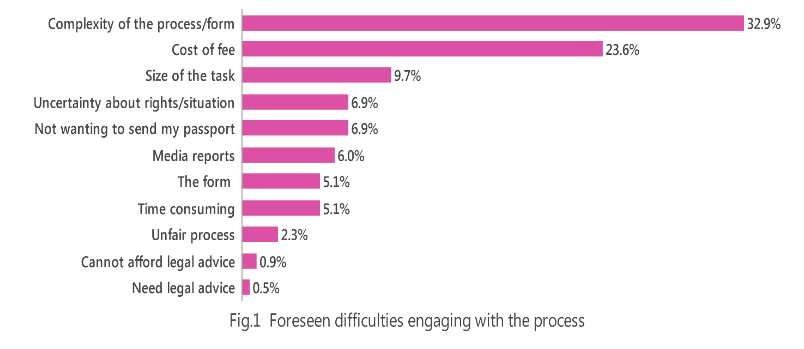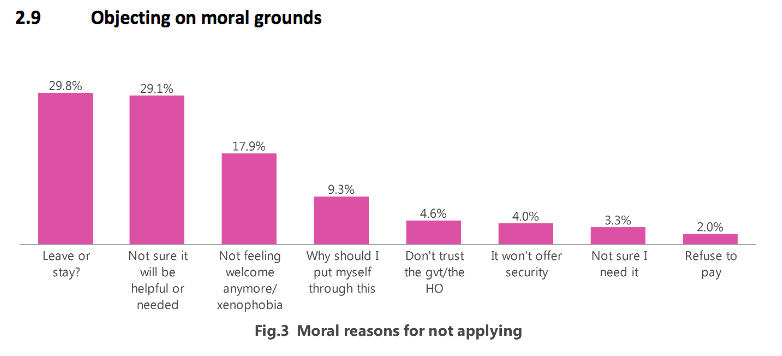UK permanent residence system not suitable for ‘real life’: survey
A survey of almost 2,800 EU nationals living in the UK showed the difficulties of dealing with permanent residence certification. Over 80% of EU citizens experienced stress when applying for these documents and the process was labelled “inflexible and incapable of dealing with real life.”
Permanent residence is acquired by EU citizens after continuously living in another EU country for 5 years. The status is obtained automatically, without need of documents certifying it. But the proof of residence is required in Britain, e.g. when applying for citizenship.
After the referendum that decided the UK departure from the European Union last year, many EU citizens living in the country took the permanent residence route as a way to secure their rights. The research carried out by the3million, a group campaigning for EU citizens’ rights in the UK, shows that the majority of applications aimed at the protection of acquired rights or were a first step to obtain citizenship. “I want to be the one to decide my future,” was the principle (and is the title of the report).

In the year that followed the vote, an estimated 150,000 EU citizens applied for documentation certifying their ‘permanent residency rights’ in the UK. In the financial year ending March 2017, 108,590 permanent residence cards were issued, 5 times more than in the previous 12 months (20,514), according to the Office for National Statistics.
Regardless of the outcome, people did not find the the process straight forward and 95% of those who took part in the survey reported gathering the evidence as the main difficulty. More than half also complained about unclear guidance.

As a result, over 80% of those who applied experienced stress. They developed a lack of trust in the process, which was described as “overcomplicated, extraordinarily burdensome as well as discriminatory, especially towards women, people on low income, vulnerable groups and anyone who did not have a linear life or employment history.”
The permanent residence system “is inflexible and incapable of dealing with real life, non-linear or complex situations,” says the report. Comments collected during the research included:
“It also doesn’t take into consideration personal circumstances – people don’t all have a straightforward working/studying background, so if you don’t it is very unclear what you have to provide and even when you send it off it is very uncertain whether you will obtain status.”
“Basically collecting any kind of information – whether bank statements, payslips, utility bills, tenancy agreements etc. – that relate to a time 7.5-12.5 years back (my qualifying period). Companies/institutions in the UK are generally only required to store records for five years, then they are destroyed.”
Not applying
A large portion of respondents (1,744) had not applied for permanent residence, however. The main reasons were the complexity of the process or its costs. These considered not only the fee of 65 GBP, but also the cost of reproducing and sometimes translating documents, sending them, travelling to the relevant offices and in some cases consulting a lawyer.
Reasons for holding off from applying or deciding not to apply

Another group of people refused to apply on moral grounds, mainly questioning whether they would remain or not in the UK after Brexit or whether the certificate would make any difference.

The research concluded that the process of applying for permanent residence certification creates unnecessary barriers for EU citizens claiming residence rights in the UK.
Anne-Laure Donskoy, co-chair of the3million and author of the study, said: “The report confirms that the current system is not fit for purpose and consistently fails applicants, especially those with complex situations. Many reported the process had made them insecure and no longer welcome or wanted in the country they had chosen as their home and where they had been living.”
As permanent residence is a legal status related to EU laws, once the UK leaves the bloc it will cease to exist. The British government proposes to substitute it with “settled status”, which in its form grants fewer rights and is still up for negotiation with the EU. The3million calls for a simplified system and proposes to use the learnings from the survey to design it.
Claudia Delpero © all rights reserved
Photo via Pixabay.
All graphs from the3million report.




